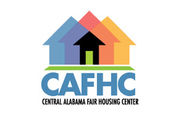Lending discrimination occurs when a lender (bank or otherwise) makes an adverse action against someone based on a protected class — groups protected from discrimination under the Equal Credit Opportunity Act and the Fair Housing Act. According to the Equal Employment Opportunity Commission, every U.S. citizen is a member of some protected class.
When someone is discouraged to apply for a mortgage based on their race, for example, that’s against the federal laws. If all else is equal but a Hispanic or African American borrower pays a higher APR on a personal loan than a white borrower under the same lender, it could be considered lending discrimination.
The ECOA prohibits lending discrimination on various factors, including:
- Sex
- Age
- Race
- Religion
- Color
- National origin
- Physical or mental handicaps
The FHA expands that protection to include familial status and forbids discrimination in any part of residential real estate transactions. Therefore, fair lending is available to all. Fair lending prohibits lenders from considering any of the above-stated criteria when applying for residential mortgage loans.
What does Lending Discrimination Look Like?
The following are examples of lending discrimination. They are curated from the U.S. Department of Housing and Urban Development white paper Guide to Fair Lending.
- A lender refuses to issue a mortgage loan on the basis of race, national origin, religion, sex, familial status, age, or disability.
- A lender refuses to provide relevant information regarding mortgage loans on the basis of race, national origin, religion, sex, familial status, age, or disability.
- A lender imposes different terms or conditions on a mortgage loan, such as different interest rates, points, or fees on any of the previously mention bases.
- A lender Discriminates in appraising property on any of the previously mentioned bases.
- A lender steers an applicant toward a bad mortgage loan product on any of the previously stated bases.
- A lender provides inferior servicing of a mortgage loan on the basis of race, color, national origin, religion, sex, familial status, age, or disability.
Legislative Protections Against Lending Discrimination
There are a number of protections in place at both the federal and state level to protect home-buying applicants against lending discrimination.
The Office of Fair Housing and Equal Opportunity enforces the federal Fair Housing Act and state and local enforcement agencies enforce fair housing laws that are substantially equivalent to the federal Fair Housing Act. There are other laws, including the Equal Credit Opportunities Act, which also protect rights, though they are not enforced by HUD.
For more information about the Fair Housing Act, please visit the HUD website, or browse the library of resources available on the Central Alabama Fair Housing Center’s website.
Identifying Unfair Lending Practices
It can be tough to identify if an applicant has been discriminated against in the lending process, however, it’s still important to understand signs of lending discrimination so that each applicant can remain vigilant.
Start by speaking to different lenders – get various quotes and compare rates. That way, the applicant can identify if one of the quotes is substantially higher than the rest. Furthermore, in addition to the already stated examples of lending discrimination, remain on the lookout for suspicious practices, such as:
- A lender asking about a borrower’s plans for having a family.
- A lender requiring a borrower to add a cosigner on a loan even though they meet requirements.
- A lender discouraging a borrower from purchasing a home because of the racial makeup of the area.
- A lender offering different terms on the phone than they do in person.
- A lender denying a borrower a loan without an explanation.
What to Do When You Experience Lending Discrimination
If you believe you have been a victim of lending discrimination, there are a number of steps you can take to ensure that the potential wrong is righted. First and foremost, visit the CAFHC website. We provide education, legal resources, and legal assistance, among a variety of other resources to keep patrons educated, engaged, and in-the-know about all things concerning fair housing. Additional actions include:
- Checking with your state’s attorney general office to see if any laws have been broken.
- Suing the lender. If you win, you can recover the money you spent in the legal battle and may be awarded punitive damages if the discrimination is found willful. If you can find others with the same claim, you may file a class-action lawsuit with a group.
- File a complaint regarding a violation of the ECOA with the Consumer Financial Protection Bureau and one regarding an FHA violation to HUD. HUD complaints must be filed within one year.
Fair lending is a right to every citizen. We want to ensure that each lending applicant is shown the respect and given the rights they deserve.

